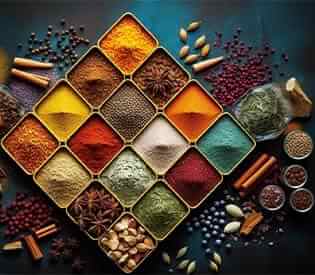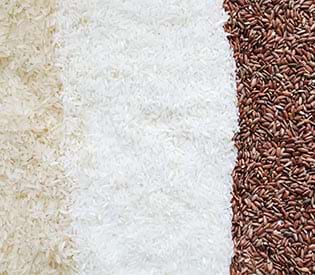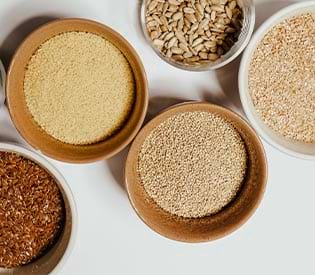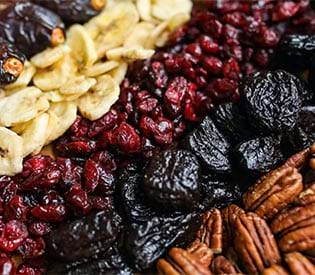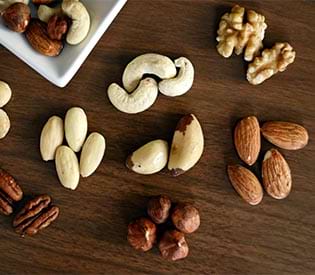Kelp Slices
📦🚚 Fast & Free shipping on all orders
What are kelp slices?
Large brown algae known as kelp inhabit chilly, generally shallow seas along the coast. They form thick clusters that resemble on-land forests. Thousands of fish, invertebrates, and marine mammal species find food and refuge in these underwater kelp towers.
How do I use kelp slices?
Just rehydrate in cold water until tender, then remove and cut. Better still, finely chop the "spent" kelp you've cooked with beans or used for dashi using a knife or scissors and add it to your soups, salads, and rice dishes.
Kelp Slice Benefits:
The fiber content of kelp seaweeds ranges from 25% to 75% of their dry weight, with alignate making up the majority of this fiber. Alignates seem to prevent the body from absorbing fats, which may help lower cholesterol and promote weight reduction.
◉ Thyroid Health: Iodine is necessary for your thyroid to operate correctly. Iodine is something your body cannot produce; therefore, you must get it from your food. Hypothyroidism is the term for the state in which your thyroid produces insufficient amounts of some essential hormones due to insufficient iodine intake. Iodine-rich kelp helps avoid hypothyroidism.
However, use caution since an excess of iodine might lead to thyroid dysfunction. Consult your doctor before consuming excessive amounts of kelp or taking a supplement.
◉ Diabetes Control: Vanadium, a mineral found in kelp, may be beneficial to those who have type 2 diabetes. Early research on people and animals has shown that it may aid in blood sugar regulation. Before vanadium is put on the market, further research is required to understand how it functions in the body.
Researchers are also looking at fucoxanthin, a compound found in brown algae that may be useful in helping diabetics control their weight. Researchers discovered that fucoxanthin enhanced the rat models' synthesis of the fat-metabolizing protein and the omega-3 fatty acid DHA. Nevertheless, people cannot consume enough seaweed to get these advantages.
◉ Prevention of Anemia: Iron deficiency Anemia may be avoided with the modest iron content found in kelp. When you have anemia, there are not enough red blood cells in your body, which prevents your tissues from getting adequate oxygen. Women who are menstruating are more vulnerable to anemia, which may manifest as weakness, exhaustion, lightheadedness, and other symptoms.
◉ Weight loss claims: Kelp is minimal in calories and fat. Alginate is a naturally occurring fiber that is also present. Alginate may be able to prevent the stomach from absorbing fat, according to studies. According to a research in the journal Food Chemistry, alginate may help inhibit lipase, an enzyme that breaks down fat, by up to 72%. Alginates are thickening chemicals used by food makers in drinks, ice cream, and weight reduction products.
Although research is still in its early stages, kelp may potentially offer significant benefits for obesity and diabetes. According to a research in the journal Diabetes, Obesity, and Metabolism, fucoxanthin, a carotenoid found in brown seaweed's chloroplasts, may help obese individuals lose weight when paired with pomegranate oil. Additionally, research indicates that brown seaweed may lower blood glucose levels and have an impact on glycemic control. Those who have type 2 diabetes may benefit from this.
Where can I buy kelp slices?
Buy kelp slices from the health food store in the USA, Alive Herbals.
Kelp Slices information (at a glance):
| Product Name | Kelp Slices. |
| Scientific Name | Macrocystis pyrifera. |
| Country of Origin | It is native to widely eaten in East Asia. |
| Product Style | Slice. |
| Taste & Aroma | kelp has a salty taste and fishy odor. |
| Shelf Life & Storage | Shelf Life is about 06 - 24 months. Store it in an airtight container in a cool, dry place and prevent sunlight exposure. |
| Precautions | We requested you, Before consuming spices, herbs, teas or any kind of natural products you consult an expert qualified healthcare practitioner or herbalist. |
| Notice | This product information has not been appraised by the Food and Drug Administration (FDA). For educational purposes only. |

